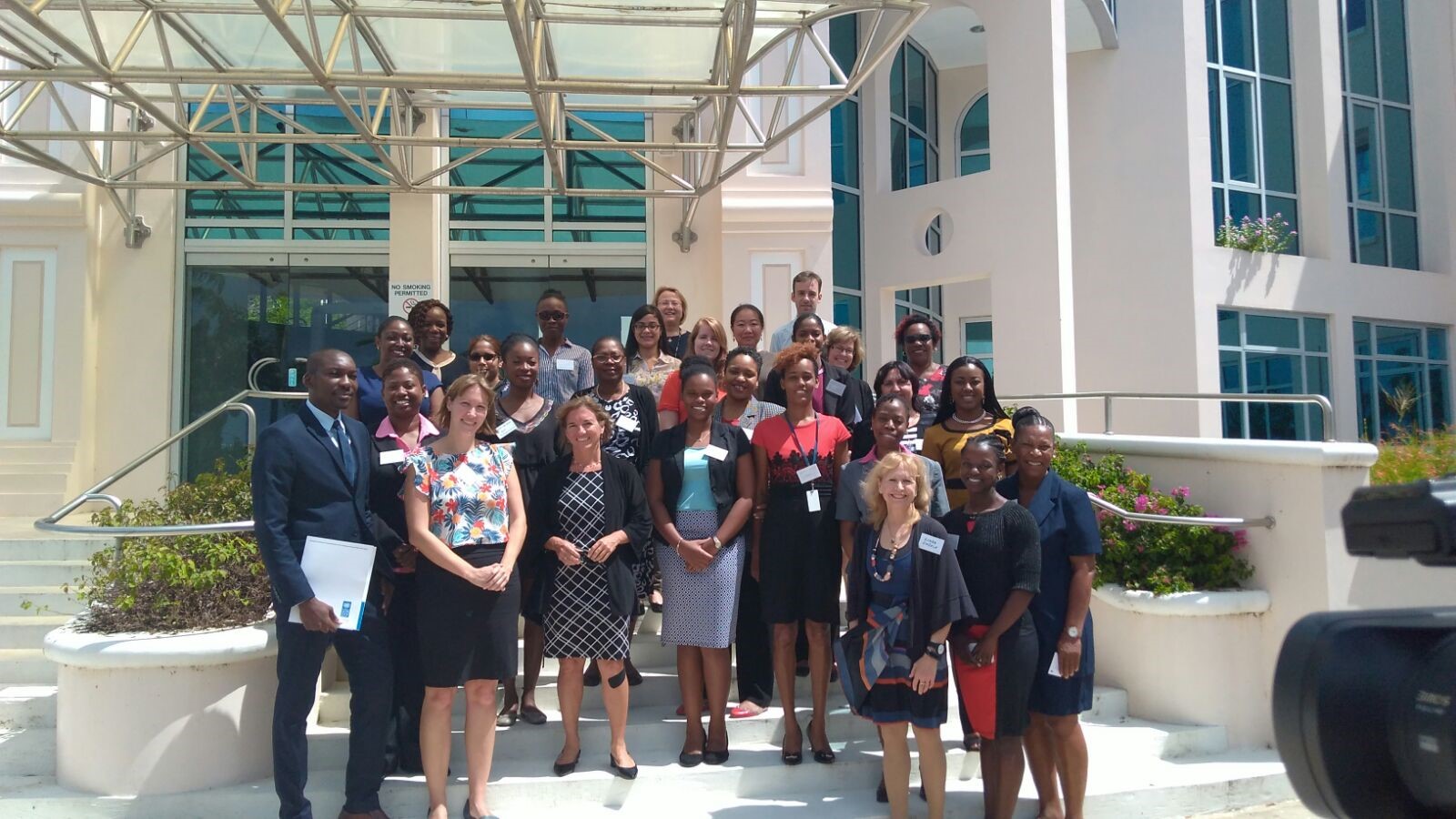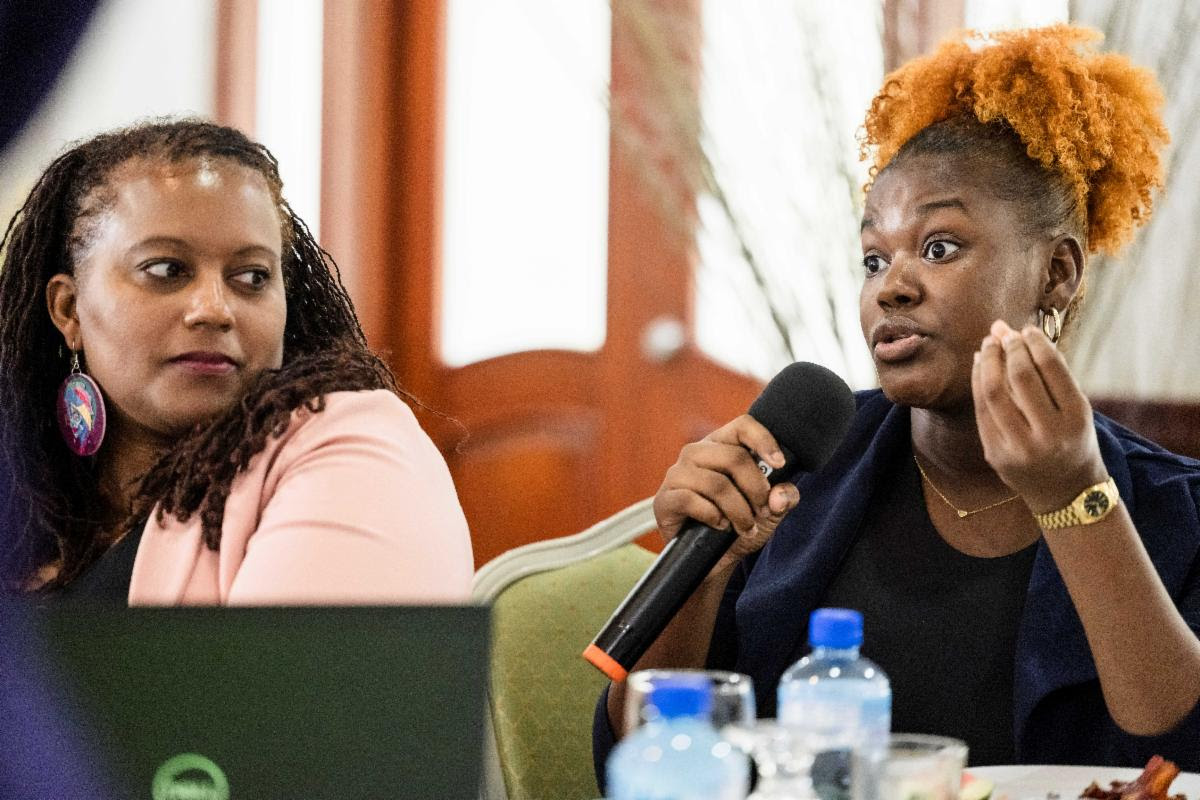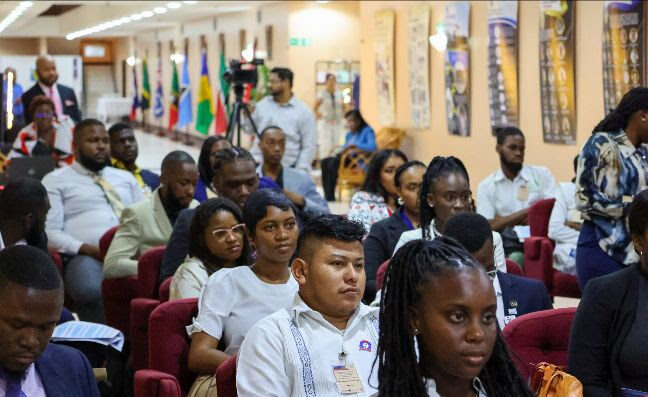The Global Environment Facility Small Grants Programme (GEF SGP) in collaboration with Environment and Climate Change Canada and the Women’s Environment and Development Organization (WEDO), hosted a climate change negotiations workshop for Caribbean women from Oct. 2 – 5. The theme of the workshop was “Leadership and Diplomacy on Climate Change” and seeks to empower Caribbean women to make stronger contributions to climate change issues and increase their influence on policy decisions that affect the region and women.
This workshop was held at the UN House and brought together 19 women representing 12 Caribbean nations namely Antigua & Barbuda, Barbados, Cuba, Dominican Republic, Grenada, Guyana, Haiti, Jamaica, St. Kitts & Nevis, St. Lucia, St. Vincent & The Grenadines and Trinidad and Tobago.
In Monday’s opening session, the Canadian High Commissioner, Marie Legault, emphasized the importance of this workshop to two pivotal areas of the High Commission: Climate Change and Women Empowerment. Having recently visited Dominica following Hurricane Maria, she commented on the stark reality of climate change driven events in the Caribbean and the fact that women are more negatively affected than men by these occurrences. This experience led to her realization that the impact of client change can sometimes be worse than war! She made a strong appeal to attendees to use their skills, networks, voices and resources to make a greater impact at an international level, on behalf of the Caribbean region and women.
In his opening remarks, David Bynoe, National Coordinator (GEF SGP Barbados) highlighted the significance of this training workshop in the aftermath of the recent devastating hurricanes, stating, “Hurricane Irma and Maria clearly demonstrated that although the Caribbean did not contribute significantly to climate change we are the ones most vulnerable to it”.
Bynoe relayed that the importance of this workshop is further amplified by the fact that climate change has a greater negative impact on women than men. To reinforce this, he referred to the 2004 Indian Ocean Tsunami where 67 percent of the fatalities were women and the 1991 Bangladesh cyclone where 5 times as many females perished when compared to men.
In closing, Bynoe recognized the timeliness of this workshop with the United Nations Framework Convention on Climate Change’s 23rd Conference of the Parties (UNFCCC COP 23) taking place in Germany next month. “The skills you will learn during the following four days will be instrumental in working towards lobbying for the concerns of Small Island Development States (SIDS) in the Caribbean in a manner that is gender sensitive,” Bynoe asserted.
The Workshop’s agenda comprised a variety of learning approaches to ensure participants remained focused and interested. Comprehensive presentations were delivered on important areas like Negotiating in the UNFCCC, the Regional Context of COP23 and Climate Finance in the Caribbean, and there were a range of panel discussions around the Caribbean regional voice influencing climate diplomacy topic.
Throughout the week, participants engaged in interactive skills-sharing and simulation activities on a variety of topics including leadership, public speaking, developing a brief and drafting opening interventions.
Towards the end of the workshop, the attendees expressed gratitude for the wealth of knowledge gained and the overall effectiveness of the workshop in providing solid exposure to the UNFCCC, preparing them for COP23 and building their capacity to support their countries’ climate change efforts.
The simulation exercises delivered insight into the formal process, teaching them how to conduct negotiations, build relationships and handle conflict.
Ruth Spencer, National Coordinator (GEF SGP Antigua) expressed, “this workshop provided a good overview of the UNFCCC and really helped us to learn how to navigate the process and understand the resources available”. Overall, participants were happy with their experience and felt that the sessions helped to improve their understanding and ability to engage in climate change negotiations.
Bridget Burns, Co-Director of WEDO, expressed her satisfaction with the outcomes of the workshop and her gratitude to the GEF SGP and UNDP for their support in hosting the event. She felt privileged to have formed a new partnership with the Caribbean stating “it was an immense pleasure to work in the region as it is filled with talent, hope and people who see the impact of climate change and want to increase the levels of activity and effort. The solutions and innovations are here!”





